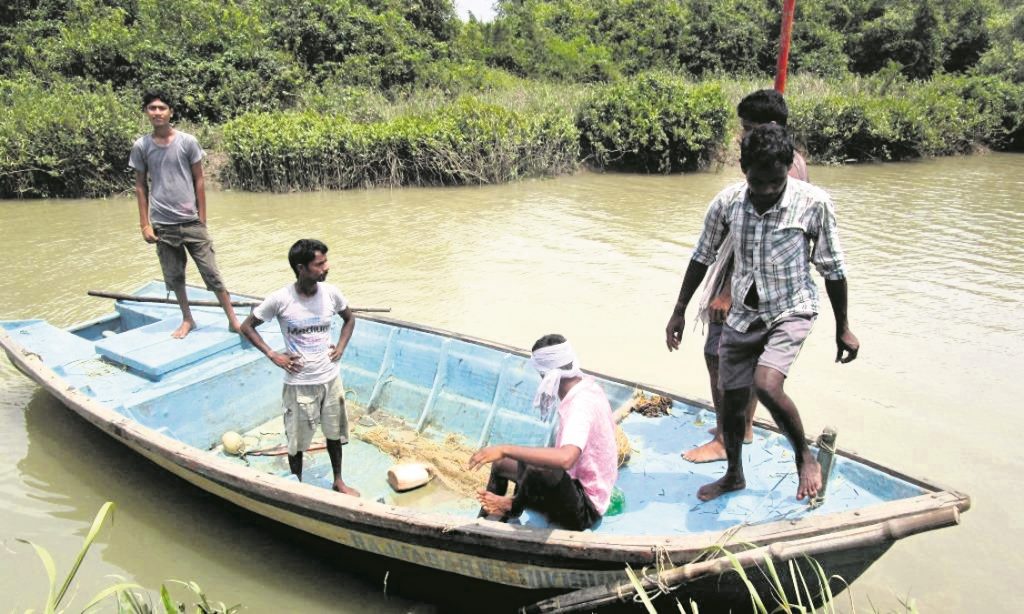Kendrapara: Bhitarkanika National Park, a haven of biodiversity, is fast losing its ecological integrity with rampant illegal fi sh farming and exports overtaking protected forest zones. Amid ongoing threats such as coastal erosion and forest land encroachment, both the coastal and interior regions of the sanctuary are now under pressure from commercial fish traders.
The Gobari River near Kansapala in Baulakani panchayat of Mahakalapara block has become a major hub for fish exports, while unauthorised prawn farming continues unchecked within forested areas. Local reports indicate that these activities are harming the region’s fragile ecosystem. “Every day, fish worth lakhs of rupees are transported from the Kansapala ferry point to Kolkata,” said Laxmidhar Swain, a local resident. Trawlers from Kolkata, Balasore and other locations are routinely used for this illegal trade. The operations, carried out along the rapidly eroding banks of the Gobari River, are destroying mangrove forests essential to the area’s ecological balance. The site is barely 5 km from the Jambu forest and 5.5 km from the Marine Police Station, yet enforcement remains weak.
According to Ramesh Sethi of Tantiapal, fish export operations are also conducted via a jetty at Jambu Lock. Despite a ban on the movement of large trawlers in the restricted zone, the Forest and Marine Police departments reportedly lack the necessary high-speed boats to monitor or intercept these vessels. “The Forest department personnel themselves are complicit in the destruction,” said Pratyush Kumar Nayak of Rajnagar. “They are promoting prawn gheries and are, in fact, partners with traders and fish farmers.” Ashok Kumar Samal echoed these concerns, saying that environmental protection in Bhitarkanika has collapsed. “While prawn enclosures continue to expand, Rupchandi fish farming has been going on inside protected areas for the past five years,” he said. “Fish farming in the park’s creeks and ponds is disrupting the natural ecological balance.” Bhitarkanika’s vast mangrove forests, rare wildlife and coastal landscape attract tourists from across India and abroad.
Also Read: Bhitarkanika facelift on cards to boost tourism
The park is a habitat for endangered species, including Olive Ridley turtles, estuarine crocodiles and dolphins. However, environmentalists fear that the mushrooming of prawn gheries and rampant illegal fishing is enabling fish traders to gain control of protected forest areas. Social worker Mahesh Kumar Padhi noted that several public interest litigations have been filed in the Orissa High Court to safeguard Bhitarkanika. “The court has issued directives for the removal of illegal prawn enclosures in and around the national park,” he said. He warned that waste discharged from fish farming activities is polluting the forest and damaging the environment.
Environmental scientist Prabhuprasad Mahapatra added that forest land within the national park is being misused for political gain. “Local political leaders are using forest areas as vote banks,” he said. “Encroachers are grabbing land, engaging in fish farming, poaching wildlife and destroying forests. If these intrusions are not curbed, Bhitarkanika could face irreversible damage.” An official from the district administration confirmed that access to Bhitarkanika’s reserved forests has been restricted. “With administrative assistance, previously established prawn enclosures are being dismantled,” the official said. “No permission has been granted for fish farming in restricted zones.”
